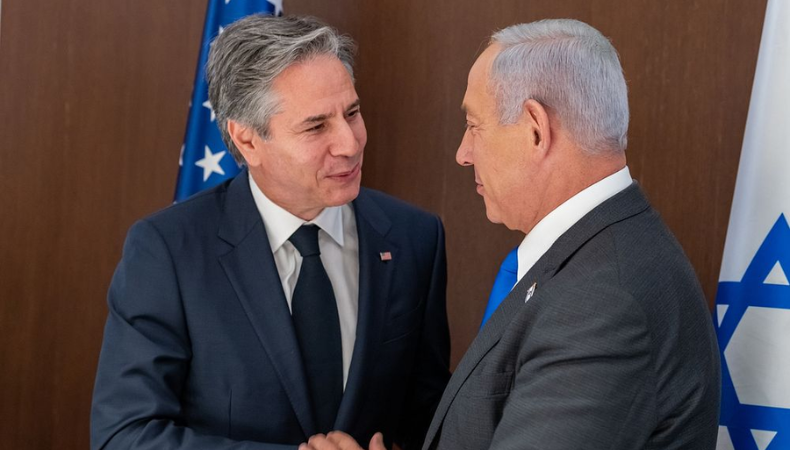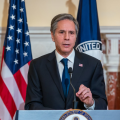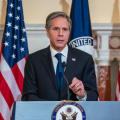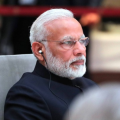Blinken’s High-Stakes Middle East Visit Amid Israeli Hostage Rescue and Ceasefire Tensions

With the unexpected and stressful visit of U.S. Secretary of State Antony Blinken, a great deal of change is about to occur in the Middle East. The amazing prisoner rescue operation in Gaza is endangering the negotiated cease-fire between Israel and Hamas.
Averted Hostage Crisis
Four Israeli citizens held in Gaza have been freed as a consequence of the biggest and most audacious captive rescue operation Israel has conducted since the start of the war. This enormous military effort has changed the dynamics of the current wars fundamentally, maybe paving the way for peace negotiations. The suffering of the prisoner families has been much reduced by the successful rescue. It also shows Israel’s military might and determination, which can affect the atmosphere and setting of the cease-fire talks.
Opportunity for Consultative Work
At Cairo, Antony Blinken will first meet with Egyptian President Abdel Fattah El-Sissi. Being a long-time mediator in the Israeli-Palestinian dispute, Egypt is a key participant in the efforts to back the cease-fire agreement. Expected hot issues in Cairo are the viability of the truce, steps to stop more violence, and procedures for supervision and execution. Following his meeting with President El-Sissi, Blinken is scheduled to visit Jerusalem and Ramallah to meet with Palestinian Authority President Mahmoud Abbas and Israeli Prime Minister Benjamin Netanyahu. The goal of these talks is to come to an agreement and guarantee that all sides back upholding the cease-fire and pursuing a lasting peace.
Position of the Biden Administration
Recognising the vital importance of Middle Eastern peace for geopolitical and humanitarian reasons, the Biden administration has been putting up great effort to halt hostilities. As the war approaches its ninth month, the United States is starting its most focused diplomatic campaign to date in an effort to get Hamas and Israeli authorities to agree to a resolution that would put an end to hostilities and result in the release of additional prisoners. Along with a structure for upcoming talks on a long-term peace settlement, the U.S. proposal has provisions for humanitarian relief and rehabilitation work for Gaza. Working directly with regional friends and diplomatic power, the administration is putting together a coalition to support the cease-fire.
Leader Test
For President Joe Biden, this is a major challenge to American diplomacy and leadership. As per Biden’s cease-fire agreement, Israeli forces would leave populated parts of Gaza for six weeks during which time hostilities would end. For this, Hamas would free a few of the female, injured, and elderly detainees. With the help of this agreement, the violence should temporarily stop and more in-depth talks on the root reasons of the conflict should be possible. Reaching this cease-fire will greatly improve Biden’s reputation in foreign affairs and strengthen American position as a major mediator in global conflicts.
Opportunity
The world is waiting impatiently to see how Blinken handles the sensitive and convoluted Middle Eastern political environment. Should these diplomatic initiatives succeed, the history of the area could shift, providing some respite from the unrest. There are, nevertheless, serious obstacles. It will need ongoing diplomatic efforts and international collaboration to guarantee the commitment of all parties to the cease-fire, handle the humanitarian crisis in Gaza, and establish the foundation for a long-lasting peace. Whether a permanent settlement to one of the longest-running disputes in modern history can be reached will depend critically on the course of the following few weeks.
Keep On Reading
Bigger Overall Impacts
More generally, how this diplomatic mission turns out will have an impact on international relations as well as regional stability. A successful pause might lower tensions throughout the Middle East, lower the possibility of protracted regional wars, and improve collaboration on other urgent problems like economic growth, climate change, and counterterrorism. But a transient ceasefire might make already high tensions worse and increase instability. The whole world community benefits from supporting these efforts and making sure that the cease-fire advances towards a comprehensive peace accord.













